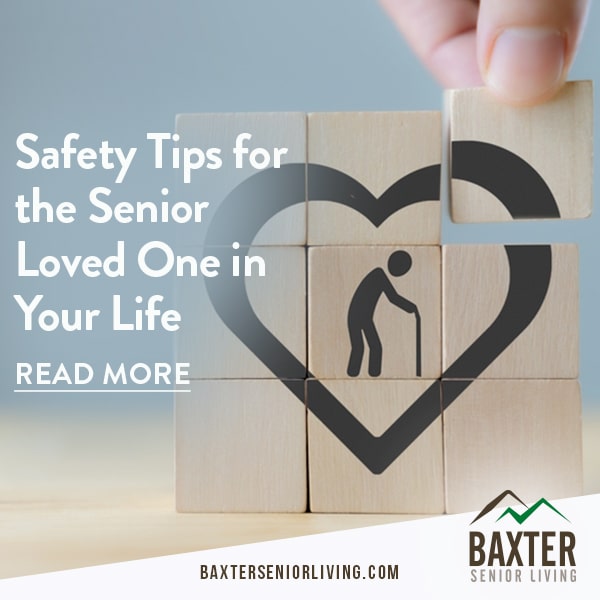Getting older is tough for everyone, and the challenges of aging can add up over time. From problems with memory to a generalized loss of balance, the senior loved ones in our lives face several challenges we may not be aware of.
Most seniors express a strong desire to age in place, remaining in their own homes as they get older. Staying at home is undoubtedly good for mental health and well-being, but the challenges of home life can also put personal safety at risk. Whether you are the live-in caregiver or just keeping tabs on mom and dad, it is essential to incorporate common-sense safety procedures into the home. Here are some home safety tips to keep your senior safe.
- Ensure the smoke and carbon monoxide detectors are working and that hard-wired models have battery backups.
- Keep a fire extinguisher under the sink in the kitchen and each bedroom
- If your loved one lives alone and you are not close by, a medical alert device can give you, and your relative, peace of mind
- Tack down throw rugs to prevent slip and fall accidents
- Urge the senior in your life to quit smoking, as stopping sharply decreases the chances of a deadly house fire
- Ask your loved one about a cane or assistive walking device
- Run electrical cords along walls or under rugs to reduce tripping hazards
- Do not wax hardwood floors, as doing so could make them slippery
- If you live in the home, monitor the floors and wipe up spills right away
- Make sure the handrails and rails on staircases and at home entrances are sturdy and in good repair
- Replace dim light bulbs with brighter ones to enhance visibility around the home
- Place light switches at the top and bottom of all staircases, and make sure bright lights are illuminating the entire flight of steps
- Install non-slip coverings on all stairs to prevent falls
Aging in place can be suitable for the senior loved one in your life, but it is vital to balance home safety with the wishes of your older relatives. Monitoring the home, taking some proactive safety measures, and using common sense can help your senior loved one stay safe at home.
If Safety Becomes a Concern
Depending on your senior loved one’s care needs or medical diagnosis, issues such as wandering and aggression may arise. Some older adults with dementia may exhibit aggression or behave violently. If various ways of reducing this behavior have been tried and failed, it can eventually put you and your loved one at risk of injury. It can also add significant stress to what is understandably already an emotional situation.
Also, many people with dementia desire to go to places or walk around. In some cases, a senior loved one can find themselves outside the home. If you have secured the house as much as possible but still find your loved one is getting outside, transitioning from in-home care to an Anchorage memory care community such as Baxter Senior Living is the best consideration for their safety.
Transitioning to assisted living instead of in-home care is a big step. Often, a significant amount of conversation, debate, and sometimes frustration goes into the decision-making process. Moving your senior loved one from in-home care to assisted living sometimes boils down to safety and overall health and well-being. As there is no “best time” for your loved one to move to an assisted living facility, it can sometimes be hard to know when the “right time” is. If you are providing in-home care services for your senior loved one and are concerned about your ability to continue to do so safely and effectively, now might be the time to consider an assisted living community such as Baxter Senior Living. We understand how stressful this time could be and the difficulties that go into this decision-making process. If you seek advice or are interested in the tour of our facility, please call Baxter Senior Living today.

